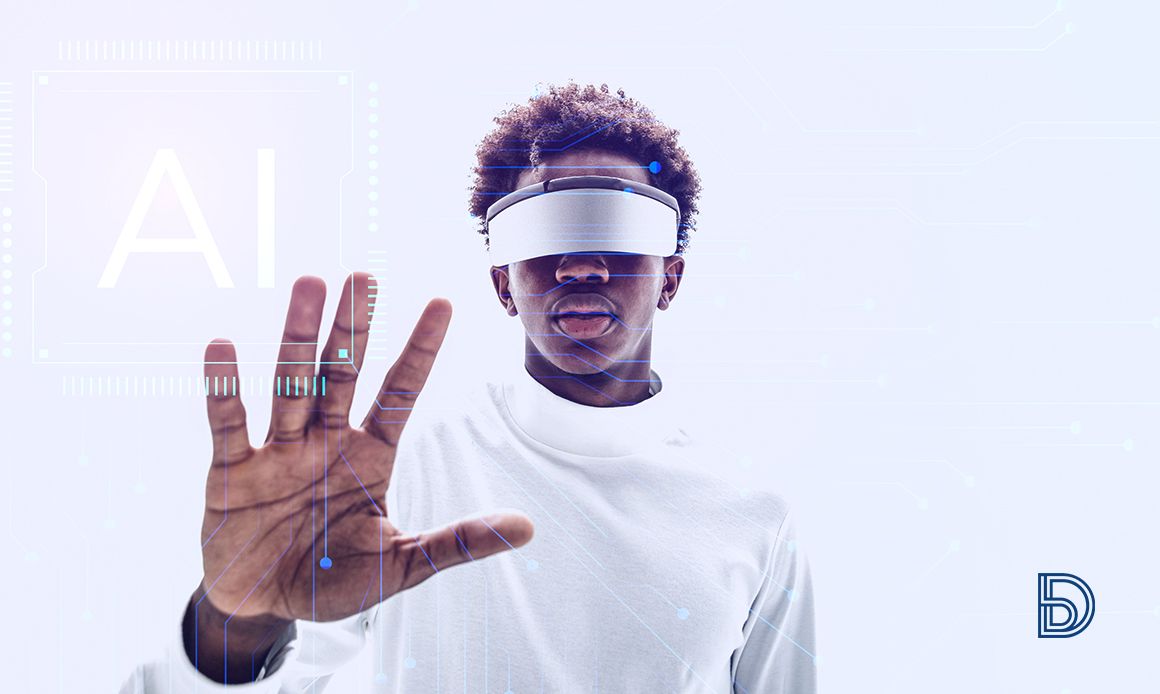How startups can leverage AI to transform education in Africa
Despite facing systemic challenges, African startups are capable of providing personalised learning, remote education, and teacher support powered by AI.

A technological wave is sweeping through Africa's education landscape with Artificial Intelligence (AI) leading the charge. The increasing demand for personalized learning and remote education has driven African startups to harness the immense potential of AI, propelling their educational solutions toward a brighter future.
Despite facing obstacles like limited internet coverage (27% in Sub-Saharan Africa) and high hardware and software costs (up to 30% of GDP per capita for a smartphone), Edtech startups across the continent are seizing the opportunity to reshape education and drive positive change.
AI's transformative capabilities can be leveraged to create innovative learning platforms, adaptive content, and data-driven insights that cater to diverse learning needs. As AI continues to expand its reach, its impact on education in Africa holds the promise of greater accessibility, improved learning outcomes, and a more inclusive educational ecosystem.
Embracing Innovation in Education
Africa stands at a pivotal moment, presented with a unique opportunity to embrace cutting-edge solutions and play a leading role in fostering innovation. Experts believe that some groundbreaking initiatives may originate from Africa itself, showcasing the continent's potential to drive and shape the future of education through AI.
Throughout history, technology has been an integral part of education, facilitating learning and improving teaching methods. From the use of abacuses for math to the introduction of calculators and the adaptation to online teaching during the pandemic, technology has consistently played a crucial role in transforming educational practices worldwide.
Revolutionizing Personalised Learning
AI is revolutionizing personalized learning by offering tailored educational experiences to individual students based on their unique needs, strengths, and weaknesses. Edtech startups can harness AI-powered algorithms to assess students' performance and provide targeted content and support, resulting in a deeper understanding of concepts and improved academic outcomes.
"Africa must deploy Artificial Intelligence (AI) to improve access to education by providing remote and low-cost learning options and personalised learning;… reduce waste and increase efficiency in resource use,” says Awolowo Dosumu, a former Nigerian Ambassador to The Netherlands.
Breaking Barriers with Remote Education
African startups can leverage AI to break down geographical barriers and provide equal access to quality education through remote learning platforms and virtual classrooms. This democratisation of education empowers learners from underserved regions, offering them opportunities to pursue their academic aspirations and uplift their communities.
Empowering Teachers with AI
AI is not just transforming student learning; it is also empowering teachers in their roles. AI-powered grading systems can save educators valuable time, allowing them to focus on personalised instruction and timely feedback. Additionally, AI-driven tools can analyse teaching practices and offer tailored professional development programs, enhancing teachers' skills and effectiveness in the classroom.
Aniekpeno Undomiel, co-founder and CEO of Tioo, an AI-powered platform that personalises lesson content, believes that AI can empower teachers to carry out research and curate age-appropriate and globally competitive content. With the click of a button and a few prompts, teachers can generate class activities, notes, and assessment questions on a particular topic for a particular class and age in seconds from multiple curricula. This relieves the teacher of unnecessary workload and opens the students to globally competitive content.
One of the challenges in African education is identifying learning disabilities in children. AI-driven algorithms can analyse student performance patterns and behaviours, enabling early detection of potential learning disabilities. This early intervention ensures that educators and parents can provide timely support and intervention, maximising academic success for all learners.
Customizing Curricula for Future Demands
AI's data analysis capabilities can enable education policymakers to understand students' needs better and design curricula that align with real-world demands. By incorporating AI insights into curriculum development, African educational systems can prepare learners with relevant skills for the job market, creating a generation of workforce-ready graduates.
Addressing Concerns
As AI continues to reshape education in Africa, certain concerns must be addressed: Data Privacy and Security: With AI requiring the collection and analysis of student data, ensuring data privacy and security is critical to protect sensitive information from misuse.
Digital Divide: Despite AI's potential, the digital divide still hinders access to technology in many African communities. Efforts must be made to bridge this gap and ensure equitable AI adoption.
Bias and Fairness: Vigilance is essential to ensure that AI-driven educational tools are designed and monitored to avoid perpetuating biases and inequalities.
Human-AI Collaboration: Striking the right balance between AI and human instruction is key to preserving the benefits of human interaction in the learning process.
AI is transforming education in Africa and presents a new era of innovation and opportunity. African tech startups can be at the forefront, and harness AI's power to provide personalised learning, bridge educational gaps, empower teachers, and prepare learners for the future. As AI adoption grows, addressing concerns surrounding data privacy, digital access, bias, and human-AI collaboration is crucial for ensuring that AI effectively revolutionises education and paves the way for a brighter, knowledge-driven Africa.







Comments ()